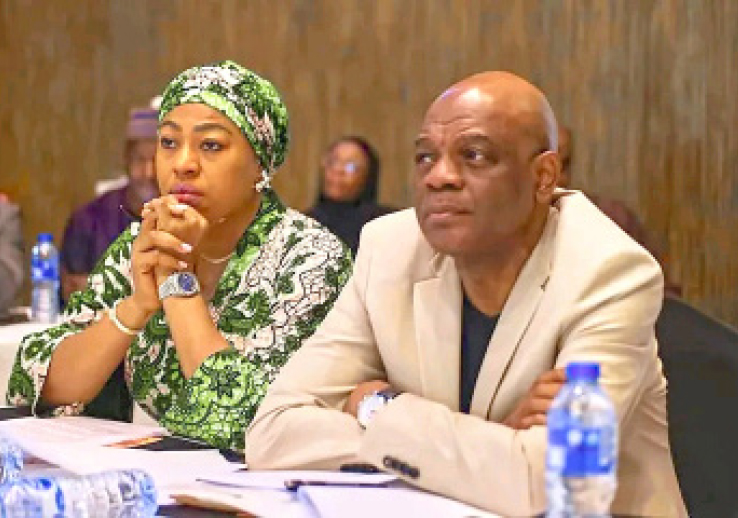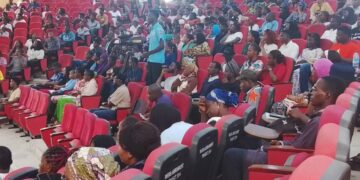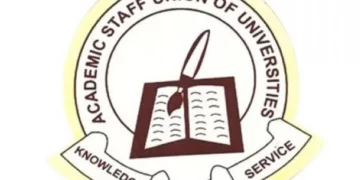As universities and colleges grapple with the challenges of inadequate infrastructure and resource constraints, the Tertiary Education Trust Fund (TETFund) has launched a clarion call for quality and timely project delivery across educational institutions.
The Fund emphasised the critical need for efficient execution of projects that enhance learning environments.
This initiative aims to galvanise stakeholders and policymakers into prioritising excellence and accountability in project implementation.
Arch. Sonny Echono, the Executive Secretary of TETFund, outlined the agency’s ambitious vision for enhancing the quality and efficiency of educational institutions across Nigeria during a recent retreat held in Lagos.
His remarks were directed primarily at the heads of beneficiary institutions, emphasising the need for timely and high-quality project execution.
He stressed that these expectations are crucial for fostering institutions that can compete on an international level.
“We have set a high standard for our universities and other higher institutions benefiting from our intervention projects.” This commitment involves a multifaceted approach aimed at improving management practices, project execution, and overall institutional effectiveness.
Central to Echono’s message was a clear set of expectations for the management of projects funded by TETFund, highlighting that beneficiary institutions must demonstrate efficiency in planning and managing the resources allocated to them.
“They must manage the resources given to them well,” he insisted, urging leaders to be prompt in their dealings with contractors to avoid delays that could lead to increased costs due to inflation.
Echono also emphasised the importance of robust supervision mechanisms. “We are introducing more efficient supervision mechanisms,” he stated, while reinforcing that the quality of projects must meet optimal standards.
Beyond construction and infrastructural projects, he encouraged institutions to leverage opportunities in research, innovation, and entrepreneurship, which are essential for cultivating a thriving academic environment.
Furthermore, he addressed the need for these institutions to improve their revenue generation strategies.
“They should also take advantage of the opportunities we are giving them… so that they won’t be too dependent regarding funding,” he noted.
This call for self-sufficiency aligns with global trends in higher education, where institutions are increasingly required to diversify their funding sources to remain viable.
Echono also spoke about the expanded responsibilities of TETFund, particularly regarding the Student Loan Scheme.
He assured stakeholders that the agency is equipped to handle these additional tasks, crediting an increase in revenue from the Education Tax, which now stands at three percent.
“We are also more prudent and efficient in the management of our resources,” he explained, highlighting TETFund’s commitment to optimizing its operational effectiveness.
The support from the current administration under President Bola Tinubu was acknowledged, with Echono expressing gratitude for the backing that enables TETFund to fulfill its expanded mandate. “We will surely not disappoint in the discharge of our mandate,” he affirmed, reinforcing the agency’s commitment to the education sector.
Rt Hon. Aminu Masari, the Chairman of the Board of Trustees of TETFund and former governor of Katsina State, echoed Echono’s sentiments by underscoring the Board’s commitment to advancing higher education in Nigeria.
He called upon board members to utilize their diverse experiences to contribute to the development of the educational landscape.
“Every hand must be on deck to support it and make it do better,” he urged, emphasising the importance of collaboration between the Board and TETFund management to maximize the fund’s impact.
Masari also paid homage to the founding fathers of TETFund and recognized the vital role played by the Academic Staff Union of Universities (ASUU) in establishing the fund. This acknowledgment serves as a reminder of the collective efforts required to bolster the education sector and ensure that it thrives in the face of contemporary challenges.
A pivotal moment in the retreat was marked by a presentation from Prof. Abubakar Rasheed, the immediate past Executive Secretary of the National Universities Commission (NUC).
His paper, titled “The Role of the Board of Trustees in Transforming the Future of Higher Education in Nigeria,” highlighted the critical importance of quality tertiary education for the nation’s future. Rasheed posited that the efficacy of public tertiary institutions hinges largely on TETFund’s support, noting,
“Without TETFund, many public tertiary education institutions would find it difficult to function effectively or would not have survived.”
His call for synergy between board members and TETFund management resonated with attendees, reinforcing the idea that collaboration is essential for the effective delivery of educational services. Rasheed’s insights underscored a collective responsibility to enhance the quality of education in Nigeria, ensuring that institutions can not only survive but also excel in an increasingly competitive global environment.
The retreat marked a pivotal moment for TETFund as it sets its sights on transformative change within Nigeria’s higher education system.
Echono’s clarion call for quality and efficiency, alongside Masari’s leadership vision, encapsulates a shared commitment to improving educational outcomes.
The contributions of leaders like Rasheed further emphasize the critical role that strategic planning, resource management, and collaboration play in the pursuit of academic excellence.
As TETFund embarks on this journey of reform, the expectations set forth will not only challenge institutions to elevate their standards but also empower them to become self-sustaining entities capable of navigating the complexities of modern education.
The ultimate goal remains clear: to forge a path that leads to a globally competitive higher education system, one that is equipped to meet the challenges of the 21st century.





